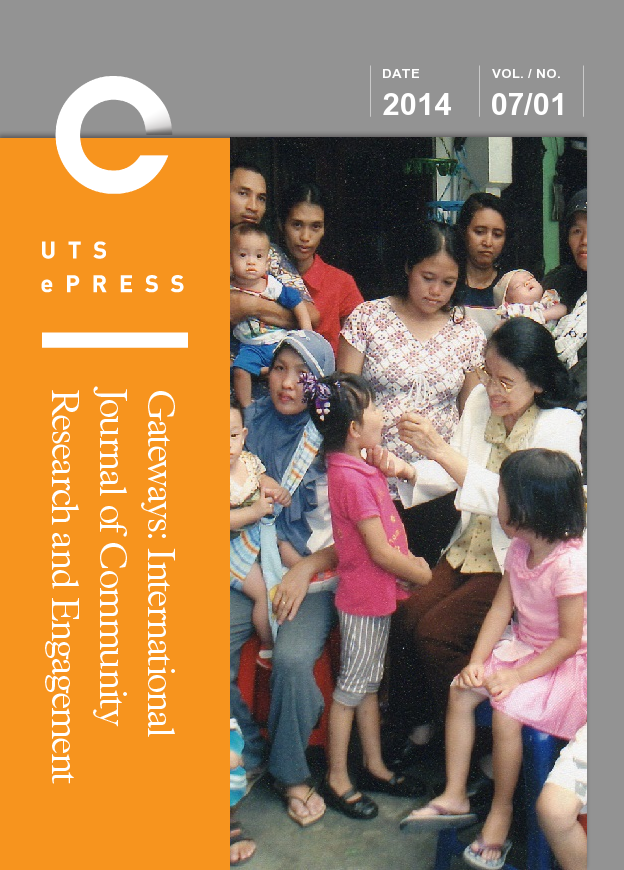Breathing life into theory: Illustrations of community-based research – Hallmarks, functions and phases
Main Article Content
Abstract
There is a growing interest in the area of research that engages communities. Increasingly, this community-based research (CBR) approach to research is being seen as a catalyst for social innovation, for public policy improvements, for solving complex community issues, and for promoting democracy in which local knowledge is valued in building local solutions. This emerging interest in engaging communities in research (both within and outside academia) brings both successes and challenges.
The purpose of this article is to summarise the theory underlying community-based research and to illustrate that theory with Canadian case examples of research studies conducted by the Centre for Community Based Research (CCBR). The article begins by reviewing the hallmarks, functions and implementation phases of community-based research, which are rooted in academic tradition. Three case examples are presented to illustrate the main hallmarks of CBR. The intention is to clarify community-based research by reflecting on iterative theory through practice and practice through theory.
Keywords: community-based research, community-university research, knowledge production, knowledge mobilisation, community mobilisation, research for society
Article Details

This work is licensed under a Creative Commons Attribution 4.0 International License.
Authors who submit articles to this journal from 31st March 2014 for publication, agree to the following terms:
a) Authors retain copyright and grant the journal right of first publication with the work simultaneously licensed under a Creative Commons Attribution License that allows others to share and adapt the work with an acknowledgement of the work's authorship and initial publication in this journal.
b) Authors are able to enter into separate, additional contractual arrangements for the non-exclusive distribution of the journal's published version of the work (e.g., post it to an institutional repository or publish it in a book), with an acknowledgement of its initial publication in this journal.
c) Authors are permitted and encouraged to post their work online (e.g., in institutional repositories or on their website) prior to and during the submission process, as it can lead to productive exchanges, as well as earlier and greater citation of published work (See The Open Access Citation Advantage Service). Where authors include such a work in an institutional repository or on their website (ie. a copy of a work which has been published in a UTS ePRESS journal, or a pre-print or post-print version of that work), we request that they include a statement that acknowledges the UTS ePRESS publication including the name of the journal, the volume number and a web-link to the journal item.
d) Authors should be aware that the Creative Commons Attribution (CC-BY) License permits readers to share (copy and redistribute the work in any medium or format) and adapt (remix, transform, and build upon the work) for any purpose, even commercially, provided they also give appropriate credit to the work, provide a link to the license, and indicate if changes were made. They may do these things in any reasonable manner, but not in any way that suggests you or your publisher endorses their use.
For Volume 6 (2013) and before, the following copyright applied:
Articles published by UTSePress are protected by copyright which is retained by the authors who assert their moral rights. Authors control translation and reproduction rights to their works published by UTSePress. UTSePress publications are copyright and all rights are reserved worldwide. Downloads of specific portions of them are permitted for personal use only, not for commercial use or resale. Permissions to reprint or use any materials should be directed to UTSePress.
